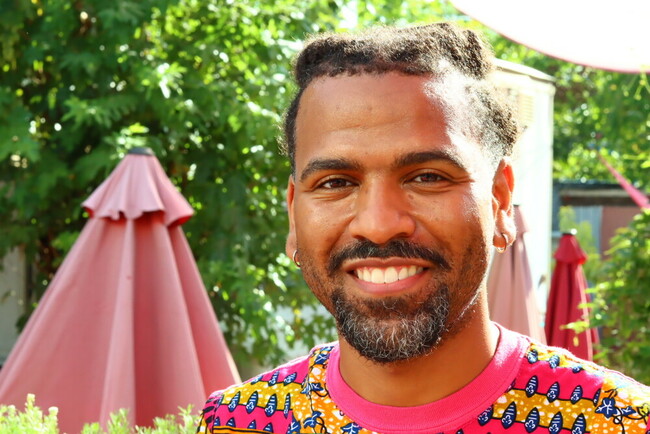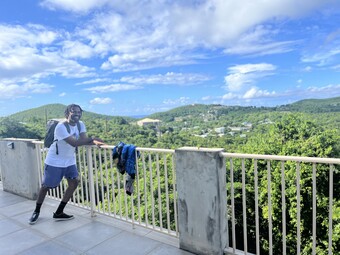
theatremaker, teaching-artist, and scholar who helps communities imagine liberated worlds.
Deen Rawlins-Harris (all pronouns) is a theatremaker, teacher, and organizer from Boston, MA. They received their bachelor's degree from Bucknell University in education and political science. Currently, Rawlins-Harris is a MFA student at The University of Texas at Austin in the Theatre and Dance Department, specializing in Drama and Theatre for Youth and Communities. In their work, Rawlins-Harris regularly designs and implements dynamic art and culture events with the support of youth leaders. They are the current co-chair of American Alliance for Theatre and Education's Research Network Committee. A few of Rawlins-Harris' recent awards include the Point Foundation BIPOC Scholar Award (2022-2024), Texas Educational Theatre Association Founders Scholar Award (2022-2023), and Planet Texas 2050 Artist Fellowship Award (2022-2023). They've worked professionally as artsist and educator with Company One (Boston, MA), Shakespeare Theatre Company (Washington, D.C.), and Miami Theatre Center (Miami, FL), HowlRound Theatre Commons (Boston, MA), The Da Vinci Studio School of Creative Enterprise (Letchworth, England) to name a few.. Deen is currently creating and facilitating the Youth Producer Program with Fusebox Festival (Austin, TX), an immersive youth leadership training program in which youth program a city-wide festival for youth by youth. To connect with them and learn more about their work please visit www.deenrawlinsharris.com.

